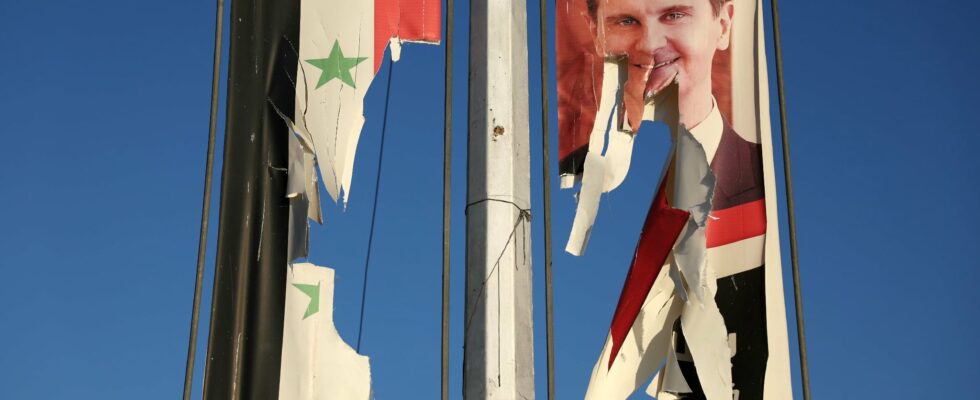Syrian President Bashar el-Assad affirmed, Monday, December 2, that the rebel offensive in northern Syria aimed to “redraw the map” of the Middle East, according to a press release from the presidency. In a telephone interview with his Iranian counterpart, Massoud Pezeshkian, Bashar al-Assad declared that the “terrorist escalation” aimed at “trying to divide the region, to crumble its states and to redraw the map of the region in accordance with the interests and the objectives of America and the West.
Syrian and Russian planes bombed rebel areas in northwestern Syria on Monday, killing 11 civilians including children, after the regime lost the city of Aleppo in an insurgent-led offensive, said an NGO. It is the first time since the start of the war in Syria in 2011 that the government, an ally of Iran and Russia, has completely lost control of the northern city, a stinging setback inflicted by the Islamist group Hayat Tahrir al-Sham (HTS) and allied Syrian rebel factions, some of which are supported by Turkey.
Turkey denies any “foreign interference”
This coalition of anti-government fighters, present in force in the province of Idlib (northwest), launched a dazzling offensive on November 27, taking dozens of localities and seizing the northern city of Aleppo with the exception northern neighborhoods inhabited by Kurds, according to the Syrian Observatory for Human Rights (OSDH). Syrian President Bashar al-Assad sought to obtain the support of his allies in the face of this dazzling assault which left more than 457 dead, mostly combatants but also including more than 72 civilians, according to the Observatory, an NGO with ‘a vast network of sources in Syria. Russia, which has several bases in Syria, has said it wants to help Bashar al-Assad and his forces “repel” the rebels in the provinces of Idlib, Hama, further south, and Aleppo, while the Iran has reiterated its “firm” support for the Assad regime.
For its part, Turkey, support of rebel factions in Syria, refuted Monday any “foreign interference” in the offensive launched Wednesday by a coalition led by Islamists in the north of the country. “It would be a mistake, at this stage, to try to explain the events in Syria by any foreign interference,” Turkish Foreign Minister Hakan Fidan said in a press conference in Ankara with his Iranian counterpart. , Abbas Araghchi.
According to Hakan Fidan, the “lack of dialogue between the regime and the opposition has brought the problem to this point.” “Recent developments show once again that Damascus must reach a compromise with its own people and the legitimate opposition,” added Hasan Fidan. “We do not want the civil war to intensify further,” said the head of Turkish diplomacy, who had already affirmed on Sunday December 1 that Ankara supported efforts aimed at “reducing tension” in Syria during a telephone interview with US Secretary of State Antony Blinken.
It is in this context that French President Emmanuel Macron flew on Monday for a three-day state visit to Saudi Arabia intended to intensify ties with this powerful actor in the Middle East and to “work together” for regional stabilization. While a new political crisis seems to be brewing in Paris, where the government, in place for barely more than two months, could be overthrown in the coming days in Parliament, the head of state is expected in Riyadh. He will then have a first face-to-face meeting followed by a dinner with Crown Prince Mohammed bin Salman, de facto ruler of the kingdom.
